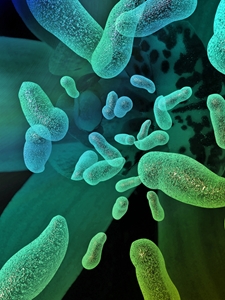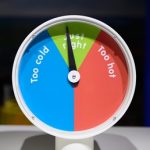With the large number of food-related scandals leading newspaper headlines, it’s welcome news that cases of foodborne illnesses have declined 17 per cent, according to new research.
Researchers at the Australian National University tracked and compiled foodborne illness rates in the country between 2000 and 2010. However, by using information supplied by hospitals and emergency departments, the university team discovered that the news wasn’t all positive for consumers and food manufacturers.
The researchers found that in two of the common types of food poisoning – Salmonella and Campylobacter – the rates have actually increased since the turn of the millennium.
Numbers of Salmonella cases, carried in undercooked chicken or eggs, rose 24 per cent over the ten years. While Campylobacter cases, which is found in raw or undercooked poultry meat and raw milk, shot up 13 per cent since 2000.
Associate Professor Martyn Kirk from the National Centre for Epidemiology and Population Health explained that food poisoning can be a preventable illness.
“On average, each Australian has an episode of foodborne gastroenteritis once every five years,” he said.
“Australian authorities have worked hard in the last decade to ensure a safe food supply, so it is disappointing not to see a decline in Salmonella and Campylobacter infections.”
It is interesting to note that Mr Kirk said that Salmonella and Campylobacter only account for about five per cent of all foodborne illnesses. In many cases, the cause remained unknown as people don’t visit a doctor or don’t undergo testing.
Despite the decline, there is still room for improvement from the food industry. Preventive measures can begin in the kitchen as care must be taken to ensure food is both cooked and prepared in a safe way to minimise bacteria growth.
Food should also be stored at safe temperatures, ideally below five degrees Celsius or above 60 degrees Celsius. To assist in this process, temperature data loggers are available to monitor and record temperatures to ensure food remains safe for consumers to eat.









 Reduce cooking oil costs while ensuring quality
Reduce cooking oil costs while ensuring quality Expert knowledge on CO2 monitoring
Expert knowledge on CO2 monitoring Refrigeration knowledge - in 3 modules
Refrigeration knowledge - in 3 modules



